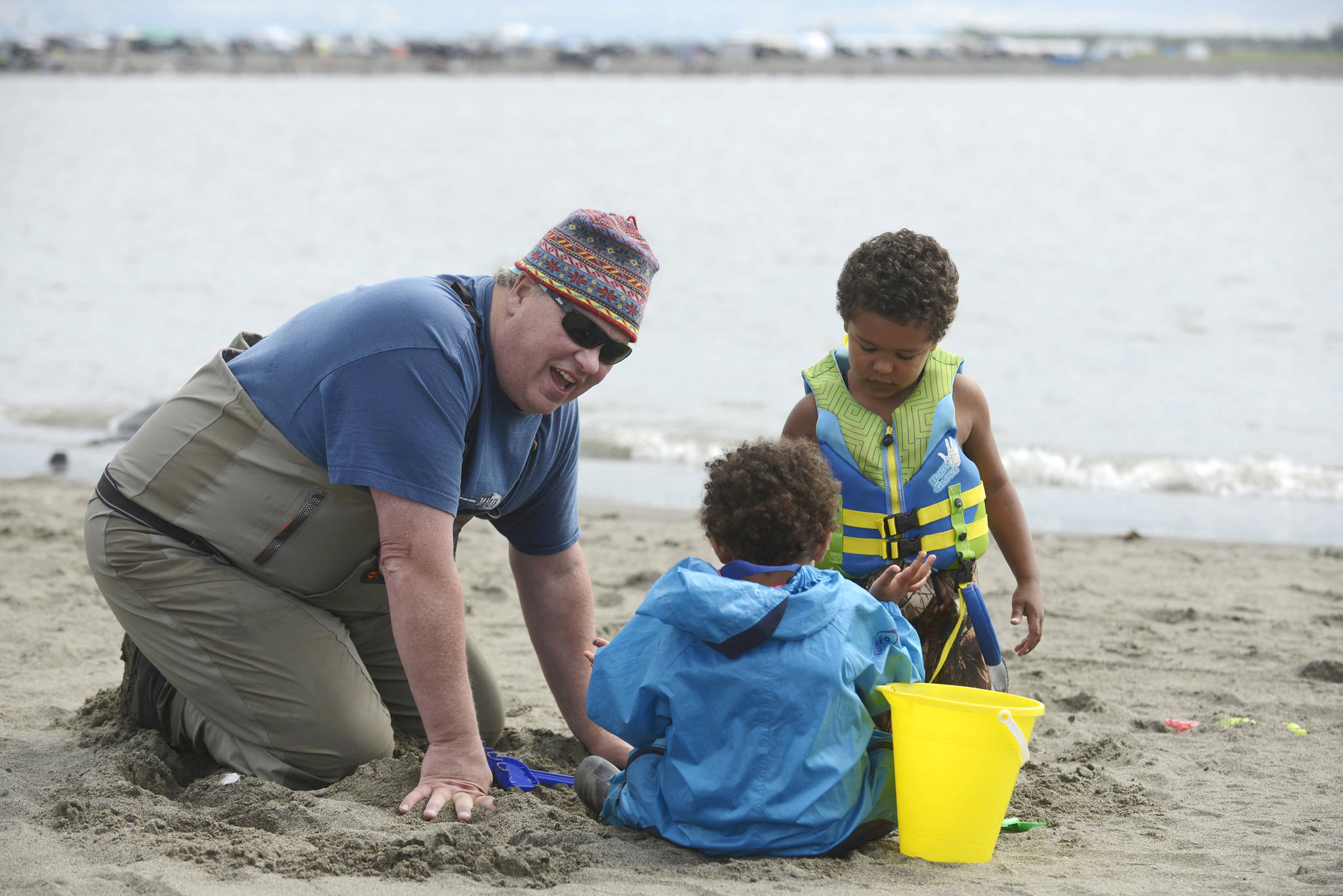This year’s personal-use dipnet fishery hasn’t draw many vendors to the north and south beaches along the mouth of the Kenai River. Nor did the Kenai city government’s new strategy of offering exclusive permits for selling coffee and ice.
Past dipnet fisheries have usually brought around 20,000–25,000 people to Kenai’s beaches between July 10 and July 31. Food trucks, ice vendors and snack stands have often followed to capitalize on the concentration of people. Traditionally, vendors have accessed the beaches just like the general public — paying the normal daily dipnet parking fee of $20 to bring their trucks or trailers to the beach or parking lot, plus obtaining the city’s mobile food vendors permits ($120 for a year, according to Kenai’s fee schedule) or transient merchant permits ($25 for a year). If a vendor goes to the dipnet every day of the season, that’s $420 to park.
At its Dec. 6, 2017 meeting, the Kenai city council began discussing other possibilities: issuing vendors exclusive permits to sell certain goods, limiting or restricting non-local vendors from the beaches, and installing utilities for the use of vendors.
The council returned to the subject at its May 16 meeting, when Kenai Clerk Jamie Heinz presented the results of a survey of dipnet vendors which had shown “that most vendors felt the venue could be better, wanted to see some sort of exclusivity, easier access, a specific vendor area, and suggested on-site electric and potable/grey water dumping and refill site nearby,” according to a memo from Heinz to the council. While the additional utilities “will need to be accomplished in future years,” Heinz wrote, the city did carry out plans to offer exclusive spots in the beach parking lot at the end of South Spruce Street to two — a coffee and an ice vendor — chosen from applicants that would be ranked by their experience, facilities, bid amount (the minimum bid was $950) and the time they planned to operate, with extra points given to vendors within the city of Kenai.
“By also selecting vendors that will commit to operating for the most amount of time, we hope that over time, the fishery users see this consistency and will utilize these vendors instead of bringing loaded coolers from their hometowns,” Heinz wrote.
Kenai mailed application packets to vendors that had previously operated during the dipnet fishery.
“Nobody applied for it,” Heinz told council members at their July 5 meeting. “We heard two comments that the price was too high. We put it back out.”
Heinz said Kenai administrators believed vendors were comparing the minimum bid for exclusive space with the lower cost of using the parking lot under the old process, and were counting on the latter. The second solicitation on June 8 kept the $950 minimum bid, but if “not enough applications are received” would raise the daily parking fee for vendors to $100, “to encourage them to use this new process,” Heinz told council members.
Again, there were no responses by the July 3 deadline.
“Because there were no applicants under the new process, it is clear the venue has not developed into something lucrative enough for the bidding process,” the clerk’s office wrote in a letter to vendors.
Heinz summarized the comments of vendors for the council members.
“They all mention how they could go to other places and make more money, so it seems like it’s obvious that they go to other events where people are there to eat,” Heinz said. “But here in this venue people are here to fish, and eating is a secondary thought.”
With no exclusive permits given this year, beach vendors have been following the usual procedure of bringing in their vehicles under normal parking fees. Not many have done so, however. On Thursday afternoon, there were no food trucks or trailers parked in north beach parking lot. North beach fee shack attendants recalled letting vendors down to the beach only on one or two days during the fishery this year.
Reach Ben Boettger at bboettger@peninsulaclarion.com

